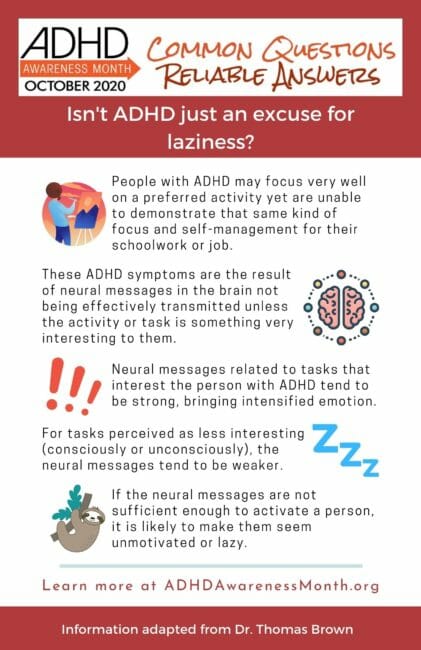People with ADHD may focus very well on a preferred activity (e.g., playing or sport or video games), yet are unable to demonstrate that same kind of focus and self-management for their schoolwork or their job. Their ADHD symptoms are the result of neural messages in their brain not being effectively transmitted, unless the activity or task is something really interesting to them, something that, for whatever reason, “turns them on.”
For people with ADHD, neural messages related to tasks that strongly interest them tend to be strong, bringing intensified motivation. For tasks they do not perceive, either consciously or unconsciously, to be quite as interesting, the neural messages tend to be weaker. If messages are not sufficient enough to activate a person, it is likely to make them seem unmotivated or lazy. For 80% or 90% of people with ADHD, medication can significantly improve such problems.
About the Author

Thomas E. Brown earned his PhD in Clinical Psychology at Yale University and served on the Yale faculty for 25 years. He is now Director of the Brown Clinic for Attention and Related Disorders in Manhattan Beach, CA, is an elected Fellow of the American Psychological Association, and has published numerous articles and six books on ADHD. His website is www.BrownADHDclinic.com
Resources
- Volkow, N.D, Wang, GJ, Newcorn, JH, et al: Motivation deficit in ADHD is associated with dysfunction of the dopamine reward pathway. Mol Psychiatry 16 (11) 1147-154. 2011
- Volkow, ND, Wang GJ, Tomasi, D, et al: Methylphenidate-elicited dopamine increases in ventral striatum are associated with long-term symptom improvements in adults with ADHD. J. Neurosicence 32 (3): 841-849. 2012

